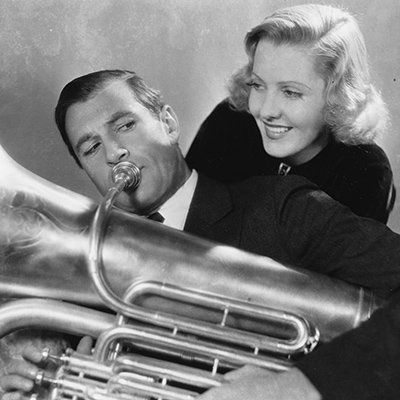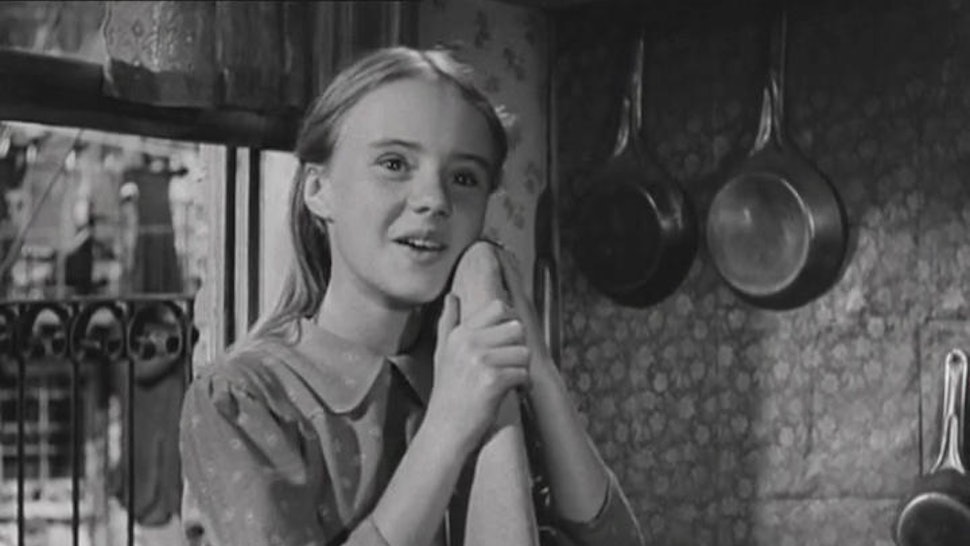Monday evening--I had a good weekend, but now I am back in an old end-of-holiday, remembering-all-that-I-have-lost kind of melancholy mood, and wishing I were back in Prague eating goulash and dumplings and drinking beer, afterwards going out onto the dark, cold hush of the Sunday night streets there on the way back to the train, or perhaps to one of the special mysterious cigarette kiosks that were only open from 10pm to midnight on Sunday...
Tuesday Evening--Everybody wanted to be City in those days. Everybody who mattered to me anyway. Even though in the 80s and early 90s, American cities, or at least the ones in the Northeast where I lived, were, especially in retrospect, not I think what most people really wished them to be. People affected to love the edginess and the constant threat of crime, which I think in many cases they mistook for part of the innate character of urban living; this is perhaps true to a certain extent, but not to the extent that prevailed in most northern cities by 1990. I read a query on the internet written by a younger person the other day asking why in the world people endured the now infamous inconveniences imposed by the circumstances of the at the time apparently permanent crime wave of the post 1965 era, such as not walking around after dark, barricading oneself in his or her apartment, being resigned to periodic robberies of your car or your person, and so on. In the first place, popular opinion at the time held that nothing really could be done about it, short of implementing the kinds of extreme policies regarding policing and imprisonment that finally have been implemented in our time, which was a path many people, myself included, were reluctant to go down then even in the face of massive violent crime rates. For once such large systems are in place as sources of employment or other forms of wealth acquisition, they are difficult to dismantle, and as they also face constant pressure to maintain and even grow the revenue flowing into them, they will inevitably turn their energies in directions that would have been considered intrusive and totalitarian at one time. But in the second place the love that many people have for great cities, or some idea of them, and the desire to live in one if it is at all possible for them to do so will inspire them to put up with a lot for the privilege, even when the conditions and atmosphere presently ascendant are not those of our literary or artistically informed imagination. And besides, in my day, especially if you were a man, having grown up anywhere within the limits of a great city--and it seemed the more notorious for crime and violence the better, in most instances-- made you conspicuously cool in any environment, such as college, or an ex-pat setting, that primarily consisted of the suburban-bred, the contrast with the males of whom in verve, dash, mental quickness and lightness, style of dress, and so on was so pronounced that after a few minutes in such company, any bland or timid suburban boy who still imagined he would be the recipient of any willing, free female love in the immediate future in that social circle was only embarrassing himself and establishing his inferiority further by the demonstration of such delusion...
Wednesday Evening--What I mean to say is that many intelligent but not phenomenally well-connected or wealthy people had desires for a particular kind of city lifestyle that American cities thirty years ago were not really equipped to deliver in any kind of broad way. It was necessary, in a sense, to be cooler (or at least wealthier) to get what good things there were to get out of them than it should have been. I don't know whether this state of affairs has improved in the interval or not. Most people who were not devastatingly cool in this way developed the habit of looking at the cities of old Europe and finding a model of urban living that appealed more to their aesthetic and self-image. This was certainly the case with me, especially with regard to the more egalitarian and less international corporate-finance oriented (i.e. cheaper) cities on the continent. Perhaps the amenities and cultural entertainments--restaurants, concerts, nightclubs, operas, festivals, transit, museums, bookstores, intellectual societies, etc--in a place like Prague are second-rate overall, but one can, or at least could, live a ten minute subway ride from and partake of all of these activities on a regular basis, and feel like one is living a version of a cultured urban life, which seems to be difficult for the person at a certain level to realize in America without a fortunate confluence of circumstances...
Thursday Evening--I saw a post on a Very Concerned Traditional Serious Christian blog in the wake of the Irish gay marriage vote last night in which an apparently respectable source was quoted with the hint of a shrug that the game had been up in that country for a while; that indeed, when he had spent some time there in 1990, young Irish girls were more than willing to fornicate with American tourists. Oh my God! Why are these glorious aspects of the world never revealed to me, who has no sense of sexual morality and for whom the whole trajectory of life, had I been able to enter this world of willing Irish girls in 1990, would have been different, I cannot help but assume in a positive way. Meanwhile these poor male Christian writers, who want nothing more than to be chaste and virtuous, and to promote the same qualities in women, cannot seem to avoid coming into contact with an endless parade of horny girls signaling carnal interests to them (to say nothing of the scourge of pornography that has already gutted the souls and ability to form mature relationships of a substantial portion of what was formerly Christendom). These poor guys should have traveled with me when I was young. I probably could have backpacked around all of the most celebrated tourist destinations in Europe and the rest of the world for the entirety of my twenties without encountering a single wild party or nightclub or stray woman in a park desirous to cajole me or be cajoled by me into an immoral relation with her (for free, that is), even though that would have been all I was really looking for the whole time. But I guess the problem is that these Christians and preachers are somehow sexy guys. When you are a sexy guy temptations and offers to betray your moral system will inevitably make their way to you no matter how powerfully or authoritatively assert your antipathy to them. When you aren't a sexy guy you can leave the house every day open to engaging in any indecency attractive to you that opportunity may present but, almost as if God were shielding you from being able to commit the sins you have not got the moral sense to be repulsed at the prospect of, the opportunities never do present...
Friday Morning--As any dedicated reader of mine knows, I have been struggling over the past few years to feel the excitement and righteousness in the ongoing gay rights ascendancy that seems to come so naturally to everybody else, so the Irish vote promised to be a good test of my development in this area. When the results came in and the forces of Good had carried the day, my response was...ehhch. I must confess, my heart sank a little, in anticipation of all the triumphant braying that it was inevitable must ensue. I had obviously been holding out hope that some large body politic somewhere that included some cool people might say 'Um, no. I love you brother, but be serious now, two men doth not a marriage make'. But evidently this is not going to happen. People will doubtless think, 'What is wrong with this guy? What's it to him if I want to marry someone who doesn't meet some antiquated heteronormative standard?'...It should be nothing to me, I agree, and if I could be excused from being expected to take it seriously as marriage and didn't have to be subjected to quite so much pro-gay sarcasm and moral instruction (which is at least every bit as grating and obnoxious as that coming from religious conservatives) I would probably be more broadly sympathetic on all of these issues. At bottom, I know that for me this is all really a struggle over who is going to lead and hold authority in public life with regard to tone of discourse and standards of behavior and whose interests are prioritized and whose aren't and I am obviously not really happy that a kind of aggressively overt homosexuality has become the distinct force in these areas that it has...
Czech version of "Where Have All the Flowers Gone" from a to me interesting-looking movie called Rebelove that featured Czech versions of a number of 1960s American pop hits. As far as I can tell, this scene appears to feature people leaving the country in the aftermath of the 1968 Soviet crackdown. Since many people did this, and at the time it seemed likely they would never be able to return, it is kind of a poignant scene.
Tramvaje circa 1995. I don't expect you to watch this.
Pankrac Metro! My old station! The underground part actually looks exactly the same. It looks like they have built a kind of modern shopping mall with fountains and all on the street level above the station. In my time there were merely a bunch of motley stalls set up selling fruit, cheap clothing, flowers and suchlike, a throwback to the Communist era.
Goofy Czech version of "King of the Road" from 1970.
Friday Evening: I have a very memory from when I was in Florence, which would have been in 1997. I was at one of the famous sites there, and I remember this middle-aged American man who was standing near me, very affluent-looking, distinctly well-dressed, and as I was lingering near him his two extremely beautiful, expensively-dressed and doubtless expensively educated daughters came up to meet him, and they struck me, who devoted very little energy to thoughts of either domesticity or the future at that time, as the kind of family that was actually worth the trouble, and thought the man must in that moment at least be very happy. I always had an idea from that time that if I had children they must be at least as good-looking and smart as this man's daughters and that we must meet together when they are twenty-three or so in some grand place and that that would be something that would make me happy. I feel in some sense that this is a terrible desire to have, because it puts some kind of pressure on my children to be a certain way that they might not want or be able to be, and that also might be superficial, which would both be wrong. At the same time I feel that this idea I have could actually come true, that we will be able to meet in Florence or Granada or New York or walk the Camino de Santiago and I will be able to do certain things I have always wanted to do and be happy doing them just as I have always imagined...
I noted the days and times when I wrote all of these things because I am frustrated and embarrassed by how infrequently I am able to put up postings. Each dated item represents about a full hour of attempted writing.
_trailer_1.jpg)










